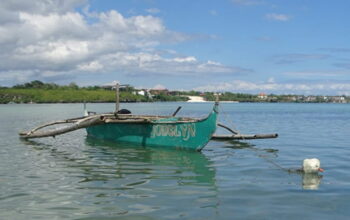PUBLIC schools in the Philippines are among the education facilities in Asia with low internet and computer access, according to a study from the Philippine Institute for Development Studies (PIDS).
In a research paper titled “School Infrastructure in the Philippines: Where Are We Now and Where Should We Be Heading?” PIDS Senior Research Fellow Adoracio M. Navarro noted that the country continues to lag behind its Asian neighbours went it came to information and communication technology infrastructures.
Using the Philippine Development Plan 2017 to 2022 edition, Navarro stated that annual targets were not met for the primary and junior high school levels on the proportion of public schools with compute packages. There was no report on the senior high school level.
“For primary schools, the accomplishment in 2017 was 78 percent of public primary schools with computer packages against a 95 percent target, 78 percent accomplishment against a 99 percent target in 2018, and 79 percent accomplishment against a 100 percent target in 2019,” the PIDS study noted.
“For junior high schools, the achievement in 2017 was 82 percent of public junior high schools with computer packages against a 95 percent target, 81 percent accomplishment against a 99 percent target in 2018, and 80 percent accomplishment against 100 percent target in 2019,” it added.
Several countries and territories across Eastern and South-Eastern Asia such as Vietnam, Singapore, the Republic of Korea, and Macao already providing computers to 100 percent of their primary and secondary schools, the PIDS said.
The PIDS study said that the non-achievement of computer package delivery in public schools may be attributed to public investment problems, which could be traced to the implementation of the Department of Education’s computerization program.
For internet access, the country had a 68.43 percent rate in lower secondary schools and 81.75 percent in upper secondary, in contrast with countries such as Vietnam and Singapore attaining universal access for all schools.
“Many contracts for the activation of Wi-Fi hotspots were partially terminated, suspended, or not yet implemented,” the PIDS said, citing procurement delays and bidding failures in the government’s internet project as few reasons.
The study cited that the country may invest in Public-Private Partnership (PPP) projects to ramp up school infrastructure investments while also contextualizing the financing mode based on needs and options.
It also suggested a geographic information system that will monitor the needs of local government units of the schools’ basic facilities. (Xander Dave Ceballos/ MB)



